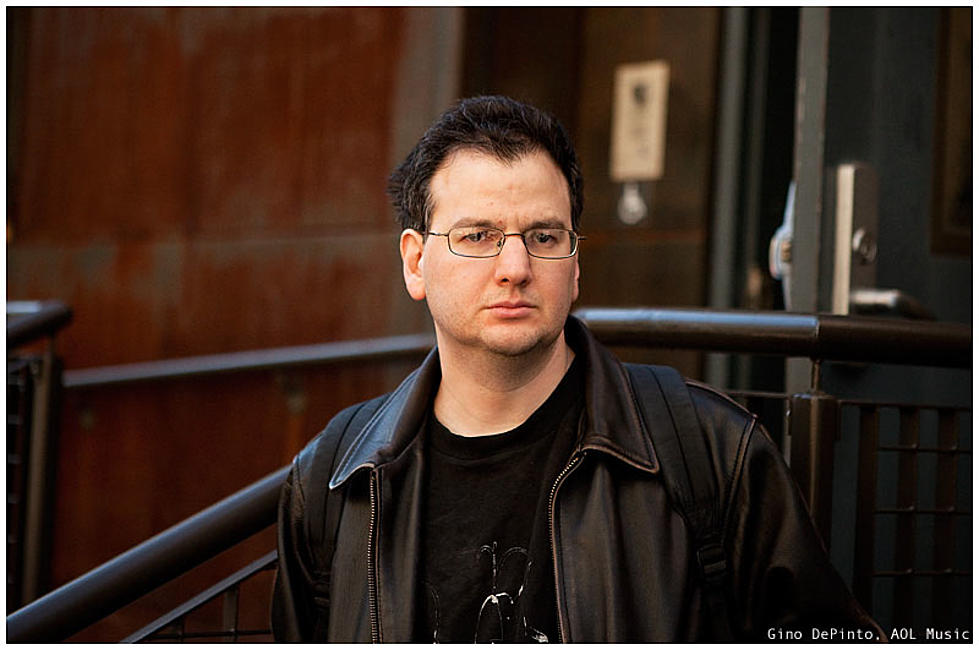Lamb of God's Mark Morton Talks Debut Solo Album, 'Anesthetic'
He didn’t set out to make a star-studded solo album; he just wanted to write songs.
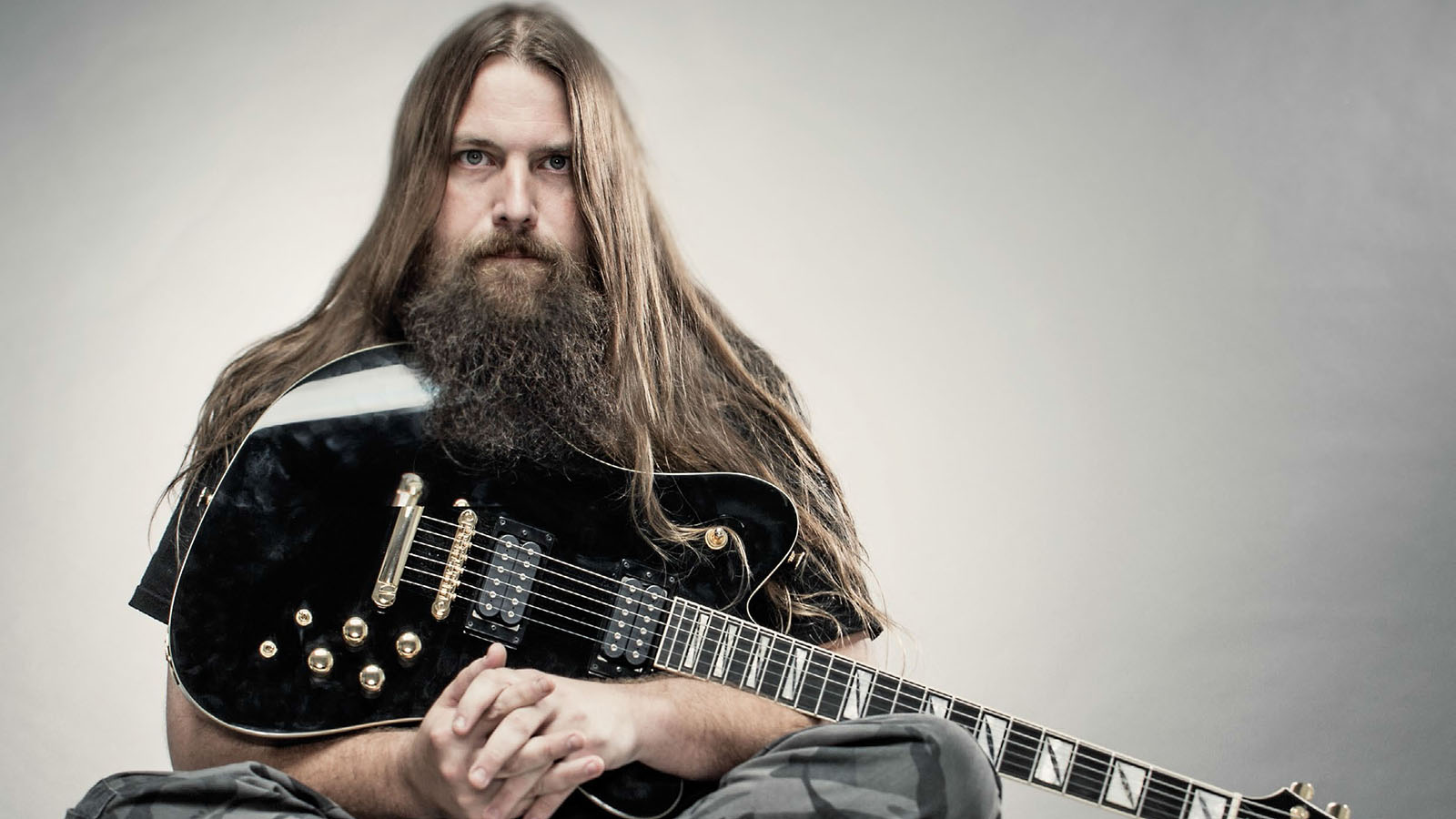
He didn’t set out to make a star-studded solo album; he just wanted to write songs. In fall 2016, When Lamb of God guitarist Mark Morton came up with the main riff of what became “Imaginary Days,” he loved the proggy, atmospheric vibe of the tune, which reminded him of some of the best Eighties Queensrÿche. He knew it wasn’t right for Lamb of God, but he kept working on it. Then, when he was done with the framework for the song, he wrote more material.
Morton wasn’t sure which of the songs he was working on would end up being Lamb of God tunes and which might surface somewhere else. All he knew was that he wanted to draw from a wide well of influences, including classic rock, surging hard rock, commercial metal, alternative and thrash to create a large batch of material that expanded the boundaries of what he had previously written. The ultra-heavy stuff was separated for possible use on the next Lamb of God record. What interested him more were the songs that relied on texture, melody and somewhat traditional rhythm structures that didn’t lend themselves to howling vocals and barreling beats.
Once he had a few of the more accessible songs demoed, he sent them to longtime Lamb of God producer Josh Wilbur to see what he thought. Wilbur loved the demos and encouraged Morton to keep writing and release a solo album.
“I get to play metal every day with Lamb of God and I’m stoked about that,” Morton says. “If you want to play metal, you do it with Lamb of God. That’s an honor. But I had all these rock tunes, hard rock tunes and bluesy tunes and I wanted to get them out of me and let people hear them.”
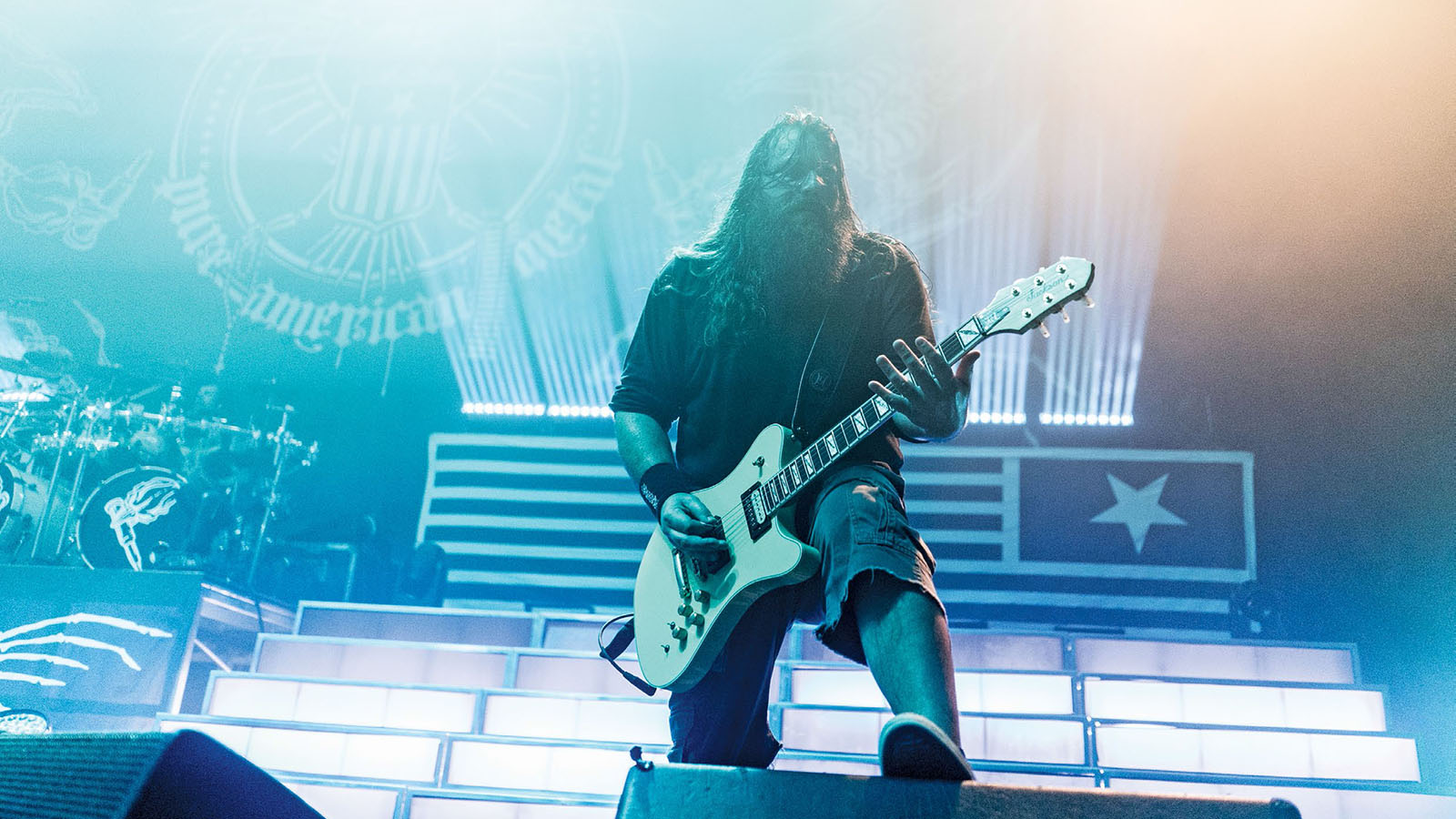
For a solo album from an established guitarist, Anesthetic is eclectic and unconventional. The tracks feature leads, but they’re not indulgent guitar workouts and they aren’t the focus of the album. Instead, they’re carefully constructed to complement the songs they’re written for. Also, every song on Anesthetic was composed with deliberate consideration for what kind of vocal would best enhance the composition.
“To me, this project was always about the songs,” Morton says. “There are even parts where I had envisioned there being solos and instead we decided to go with a vocal part or a bridge. I’m proud of my playing on the record and there are some solos I love. But what makes this album special to me is the diversity of the songs and the combinations of people that were put together for these performances.”
Morton wrote Anesthetic in several sessions between 2016 and 2018. When he had 14 songs he liked, he and Wilbur created professional demos and then reached out to a wide spectrum of potential vocalists. One of the songs that stood out the most was a melodic groove metal track that eventually turned into “Cross Off,” which features late Linkin Park vocalist Chester Bennington on vocals.
Get The Pick Newsletter
All the latest guitar news, interviews, lessons, reviews, deals and more, direct to your inbox!
After listening to the finished demo, Morton and Wilbur agreed that the aggressive vocal style Bennington exhibited on Linkin Park’s 2000 debut Hybrid Theory and 2003’s Meteora would be perfect for the song. Without knowing if Bennington was even aware who Lamb of God were, Morton reached out to the singer’s management, then sent them the demo to give to Bennington.
“I thought, ‘Man, we’re really swinging for the fences with this one,’” Morton said. “When I contacted him he said he knew about my band, but more importantly, he loved the song, and that was his big motivation to do it.”
Morton and Bennington got together at NRG Studios in Los Angeles in April 2017 and spent a day working on “Cross Off,” which was likely the last vocal Bennington recorded before he took his life four months later. Though Bennington had a history of depression, Morton says the singer was energetic and enthusiastic and couldn’t wait to record the song. He even walked in with various ideas for lyrics and vocal melodies.
“One of the things Chester was really excited about was the heaviness of the song,” Morton says. “He was happy to be screaming again and he was so good at it. He came in and was totally ready to throw down. We instantly had this great creative energy. That’s something you can hope for, but you can’t plan for it and you can’t buy it. But we had it right out of the gate. We were comfortable working together and we were totally on the same page.”
Before recording the track, Bennington and Morton worked on the lyrics together. Having dealt with a recent hardship in his life, Morton explained what he wanted the song to be about, and he and Bennington hashed out the lyrics: “Wasting away, a self-inflicted slow decay / What should’ve been, what never was / Became the end for both of us.”
Some armchair analysts have inferred that “Cross Off” is an expression of Bennington’s escalating depression. Morton, however, says the melancholy lyrics were his idea. “We had some pretty real-life conversations that were sort of in the framework of the lyrics and where we were coming from,” Morton says. “If anything, I was dealing with some shit and Chester was very compassionate and positive and uplifting. It was a really special day and I’d say one of the highlights of my career. I had a great time and the song turned out fantastic.”
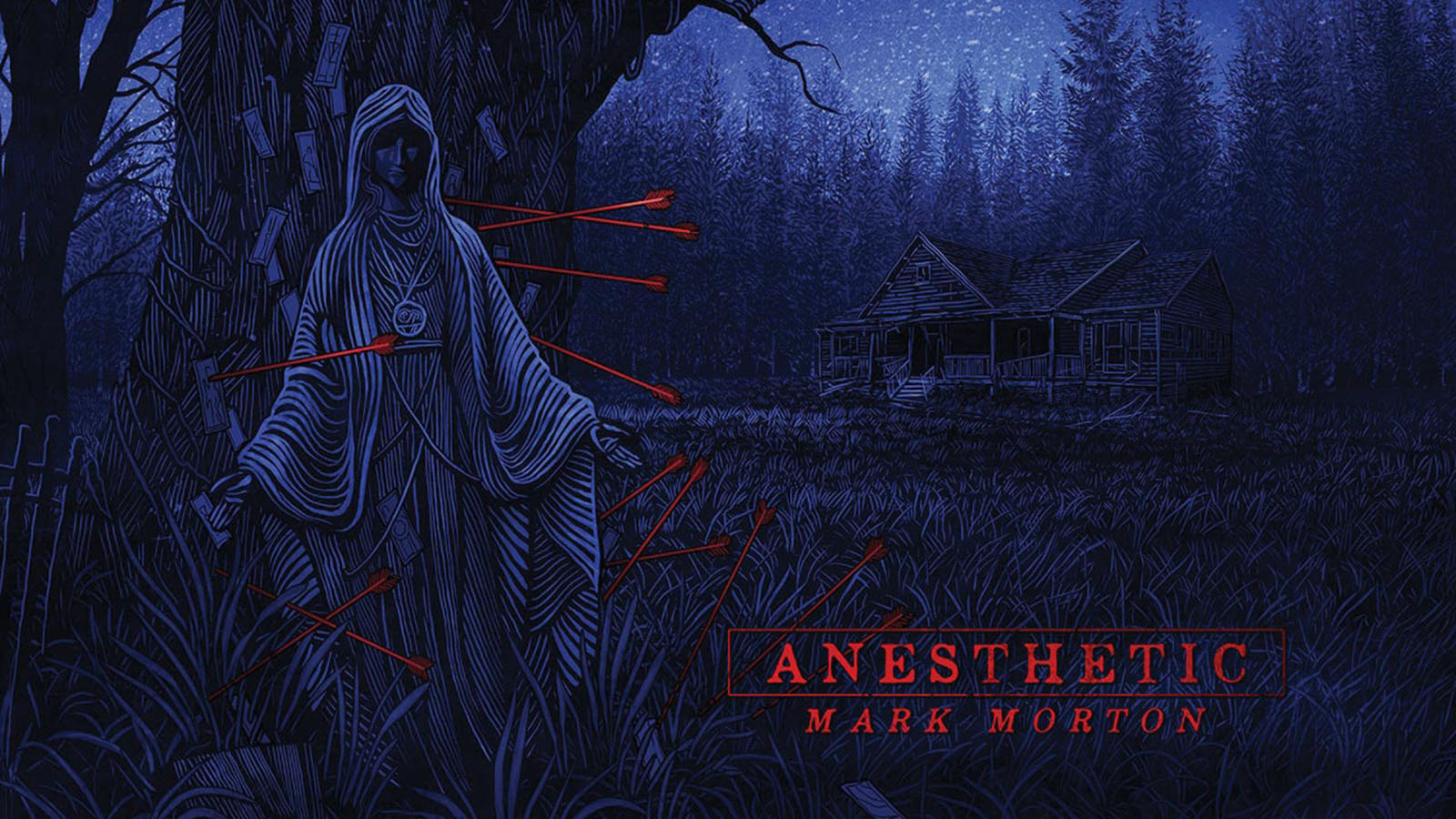
Other songs on Anesthetic feature some of Morton’s other favorite mainstream singers: Papa Roach’s Jacoby Shaddix (“Sworn Apart”), Buck Cherry’s Josh Todd (“Back From the Dead”) and Alter Bridge’s Myles Kennedy (“Save Defiance”).
“It all came together in a strange way,” Morton says. “The cart was before the horse because we wrote these songs and then we went, ‘Well, who’s this song right for?’ And then we asked the singer if he wanted to do it. But when I listen to ‘Sworn Apart,’ I can’t hear anyone singing that but Jacoby. And ‘Save Defiance’ was a different type of song I wanted to do, but it sounds like a canvas for Myles Kennedy’s voice.”
At first, Morton didn’t want to include any thrashy metal songs on Anesthetic, but Wilbur convinced him that it wouldn’t hurt to have a couple tracks Lamb of God fans would immediately identify with. So Morton banged out the propulsive, chugging “The Never,” which features Morton’s trademark abrupt, serrated left-left hand licks and vocals by Testament’s Chuck Billy.
“I’ve stood in line and paid money to watch Chuck Billy perform with Testament many, many times, long before I met him,” Morton says. “He’s got such a legendary thrash metal voice. And now, having played tons of shows with Testament, Chuck and I have been good friends for a long time. Chuck has literally sat on my back patio and played Candy Land with my daughter. That’s how close we’ve gotten.”
For the colossal album closer, “Truth Is Dead,” which starts with a delicate arpeggio and builds into a firestorm of rapidly picked notes and palm-muted riffs, Morton brought in the vocal duo of Lamb of God’s Randy Blythe and Arch Enemy’s Alissa White-Gluz. Morton says he didn’t pick Blythe specifically to appeal to Lamb fans. Conversely, he didn’t consider using a different thrash vocalist to avoid having the song compared to Lamb of God.
“I just didn’t overthink it,” Morton says. “Randy’s one of my best friends. I might be a little biased, but in terms of heavy metal screamers, Randy is, if not the best, among the best in the world at what he does. So I had a metal song and I wanted someone to scream and one of my best friends is Randy Blythe. So, of course I’m gonna have him do it. And having Alissa on there, too, creates this great contrast.”
Two songs on Anesthetic fall far outside of the typical guitar-blaring format Morton is known for. The first, “Axis,” is a hybrid of a singer/songwriter lament and a grunge ballad. The track features bluesy guitar bends, talk box guitar and vocals by Mark Lanegan (Screaming Trees). True to its sound, “Axis” surfaced only after an unusual birth. First, Morton reached out to Lanegan, his favorite vocalist of all time, without knowing him. “I said, ‘I’d love you to sing on this song I’ve done. Do you have any interest,’” Morton recalls. “And he said, ‘Send me the song.’ I sent him the first version of the song, which is basically a different song than the one on the record.”
Lanegan loved what he heard and agreed to sing on the track. He recorded vocals with his engineer and emailed the file to Morton. When the guitarist listened to Lanegan’s vocal he decided not to match it with the original music he had sent the singer.
“Suddenly, I heard a whole different song spin off in my head,” Morton says. “So Josh isolated the vocal and I rewrote the entire song to Mark’s vocal track. I’ve never done that before but I love it. It’s one of the more collaborative pieces on the album, even though it wasn’t intended to be like that.”
The second most unconventional song on Anesthetic is “Reveal,” a textural, alt-pop tune that features musicians Morton jams with on a semi-regular basis. Especially intriguing is the lead, a lightly distorted, slow-burning blues solo reminiscent of David Gilmour. “That whole song is special for me because I did it with a bunch of folks I’ve been playing with for several years now,” Morton says. “And in the spirit of showcasing stylistic diversity, it definitely answered the call.”
The band on “Reveal” features ethereal female vocalist Naeemah Maddox, Stinking Lizaveta bassist Yanni Papadopoulos, Clutch drummer Jean-Paul Gaster and Lionize keyboardist Chris Brooks. “We get together when we can, which is sometimes hard because of our schedules and locations,” Morton says. “We’re from all over the place — Brooklyn, Philadelphia, Maryland, and I’m in Virginia. So we meet in the middle and write tunes and record ’em. ‘Reveal’ is from one of those sessions.”
With 10 guest vocalists on an album and a fistful of well-known bassists, drummers and keyboardists, it’s not surprising that Anesthetic took a while to coordinate and that the final tracking and artwork were delivered at the 11th hour. One song Morton might have jumped the gun on, however, is “Back from the Dead,” a rapid-fire rocker, which features Josh Todd and almost included a guest lead from Slash.
“I had reached out to Slash about playing without knowing whether or not he was doing outside stuff,” Morton says. “I really wanted him to be a part of it. So I called him and he said, ‘Yeah, man, I’ll absolutely consider it. Send me a song.’”
Before he got the chance to send the song to Slash, Morton got inspired and recorded a ripping 30-second lead that contains a blend of psychedelic wah-wah noise, sweep picked runs and a speedy legato climax. Soon after Morton finished the lead Slash contacted him.
“I told Josh, ‘Hey, Slash hit me back. He’s down to check out the tune.’ And Josh goes, ‘Yeah, but we were gonna put him on “Back from the Dead,”’ recalls Morton. “I really liked the way my solo came out and I didn’t want to erase it so we never sent Slash the song.”
While each of the 10 songs on Anesthetic stands alone as part of a diverse showcase of Morton’s talent, his playing acts as a thread that binds the tracks together. Even devoted Lamb of God fans left feeling unmotivated to mosh will identify the distinct tones and techniques spread across the album.
“More than anything I think style is one of the coolest things a player can have,” Morton says. “It’s something I’ve strived for at times and at times I just hoped it would happen. I think it’s real cool when you can hear someone play and you know it’s them. I am in no way, shape or form in the same universe as players like Stevie Ray Vaughan, Eric Clapton, Jimi Hendrix, Billy Gibbons or Eddie Van Halen, but when you hear these guys you immediately know it’s them playing. I’d love to think my playing has that same type of identity. That, to me, is cooler than any music theory knowledge or shredding ability.”
In order to accommodate his own itinerary and those of his guest vocalists, Morton scheduled recording time at a variety of studios, sometimes depending on where he was on the road with Lamb of God. These included Hybrid Studios in Santa Ana, California; NRG Studios in North Hollywood; The Magpie Cage in Baltimore; and The Mill Studio in the Cayman Islands. Some vocal tracks were sent digitally, but most were done in sessions with Morton.
With the abundance of guitar and amp tones on Anesthetic, listeners might guess that Morton used a wide variety of guitars, heads and effects to provide the proper sonic stamp for each song. Surprisingly, almost the whole album was recorded on Morton’s signature Jackson Dominons through Mesa/Boogie Mark IV and Mark Vs. He and Wilbur doubled guitar parts for the verses and used quads in some of the choruses.
“Getting those tones was just a matter of using different settings and channels and experimenting a lot,” Morton says. “Usually we used the same guitar tone for the left and right channel and then sometimes Josh darkened one up in the mix. And all the tuning was either Drop D or standard E, so there was nothing crazy going on there. But I did play around a little more with effects that I usually do.”
Morton’s go-to effects for Anesthetic were MXRs and they were frequently set up and recorded in a haphazard fashion. “We had a milk crate of these old pedals and we just start plugging stuff in and spinning knobs around until something sounded cool and then we tracked it,” he said. “It wasn’t a very scientific process and I couldn’t tell you exactly which pedals we ended up using. Sometimes we figured out how to recapture the sounds afterward and sometimes we didn’t and we had to do something else for the live show. I also got really into using an Eventide. There are so many different settings on that and it had a cool pseudo-90s feel to it.”
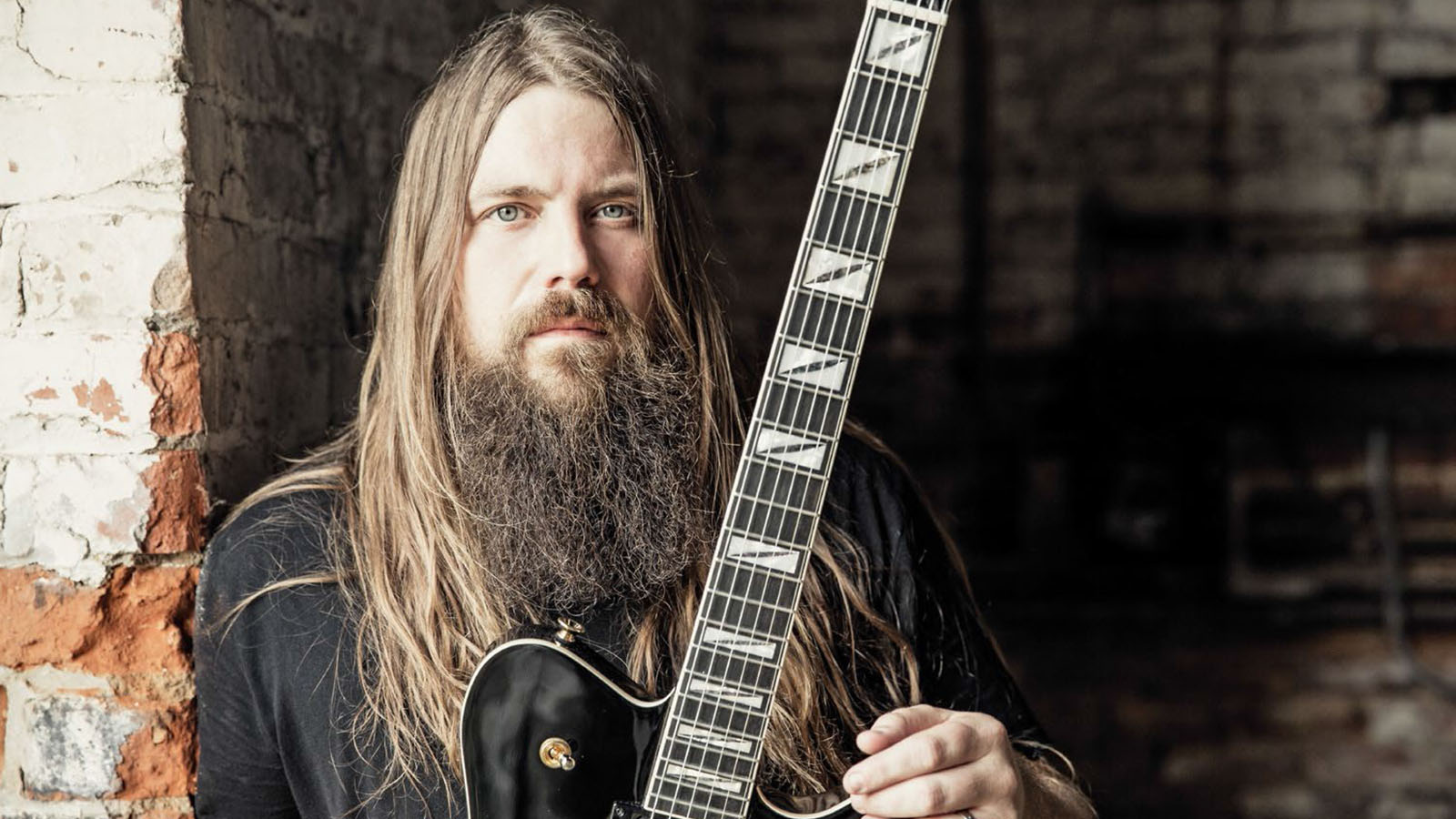
Now that Anesthetic is out, the only regret Morton has is that Bennington didn’t live long enough to see the positive reaction “Cross Off” has received. “He heard a rough mix of the song and he loved it,” Morton says. “But sadly, he never heard it mastered. And he never got to perform it live with us. That would have been the coolest thing ever.”
In March, Morton embarked on a 10-date tour to support Anesthetic. While he’d like to do more solo shows, Lamb of God had to continue Slayer’s final tour May 2 in Phoenix, Arizona. After the tour wrapped up, Lamb headed to Europe, where they played dates through July 6 in Viveiro, Spain. Now, the band may take some time off, which would provide Morton the opportunity to play more solo shows. But Lamb of God have already started working on the follow-up to 2015’s VII: Sturm und Drang and Morton is itching to get back in the studio.
“All things Lamb of God are definitely alive and well,” he says. “A lot is going on. [Guitarist] Willie Adler and I worked together in late February and we’ve got a bunch of new tunes coming together.”
Morton can’t commit to a 2019 release date for the new Lamb of God record. Then again, he’s not denying the possibility. “We might have an album out this year. I can’t say. The new music has a really good energy so far and right now we’ve got a lot of rough songs put together and we’re at the point of weeding through them so we can and make something killer.”
Jon is an author, journalist, and podcaster who recently wrote and hosted the first 12-episode season of the acclaimed Backstaged: The Devil in Metal, an exclusive from Diversion Podcasts/iHeart. He is also the primary author of the popular Louder Than Hell: The Definitive Oral History of Metal and the sole author of Raising Hell: Backstage Tales From the Lives of Metal Legends. In addition, he co-wrote I'm the Man: The Story of That Guy From Anthrax (with Scott Ian), Ministry: The Lost Gospels According to Al Jourgensen (with Al Jourgensen), and My Riot: Agnostic Front, Grit, Guts & Glory (with Roger Miret). Wiederhorn has worked on staff as an associate editor for Rolling Stone, Executive Editor of Guitar Magazine, and senior writer for MTV News. His work has also appeared in Spin, Entertainment Weekly, Yahoo.com, Revolver, Inked, Loudwire.com and other publications and websites.
